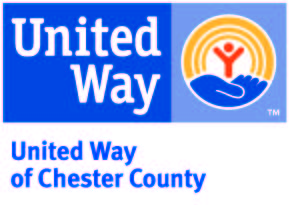
Twenty-eight states, including Delaware, Maryland, New Jersey, New York and Ohio, already offer a state Earned Income Tax Credit to their hardworking citizens
While many Chester County residents have returned to the workforce, they still face a variety of economic challenges such as rising food, housing, utility, transportation and childcare costs. A state Earned Income Tax Credit would be a good first step to providing relief to working Pennsylvanians. Our Chester County Delegation, along with the rest of the Pennsylvania General Assembly, and Governor Wolf have the opportunity, as a part of the 2022-23 Commonwealth budget, to provide that relief to working households across our Commonwealth through enactment of a state Earned Income Tax Credit.
Like the federal Earned Income Tax Credit, which is the most successful anti-poverty program in the United States, state EITCs reduce taxes, and in many cases provide refunds, for low-to moderate-income working individuals and households. Across Chester County, households count on their tax refunds to cover day-to-day living expenses, make home/auto repairs, pay down debt, and purchase furniture, appliances, and other household items. Local Chester County businesses benefit from the annual cash infusion, as do state and local governments. In the end, families that receive Earned Income Tax Credits realize improved education and health outcomes.
According to United Way of Pennsylvania’s most recent ALICE Report (Asset-Limited, Income-Constrained, Employed), more than one out of every four Chester County households struggled to make ends meet before COVID-19. Sadly, ALICE is one emergency away from financial ruin, which came in the form of COVID-19 for many families. Lost wages resulting from reduced shifts/working hours, unemployment, childcare and school closures, and the need to provide care to sick relatives created financial uncertainty for many who live here and throughout PA.
Despite the swift economic recovery from COVID-19 in Chester County, the costs of goods and services are skyrocketing, employers are struggling to find workers, and many households are being forced to make difficult financial and personal decisions. A state EITC will provide financial relief to struggling households, incentivize work and open the doors to new revenues for both businesses and the Commonwealth.
In addition to helping individuals and families, EITCs provide cash infusions to businesses too. Due to their needs, EITC recipients do not save their refund; they spend it on basic necessities at businesses in their communities. For small businesses, expenditures resulting from individual tax refunds means resources to make improvements, hire new staff and increase inventory. These funds also “trickle up” to state and local government in the form of income, sales, and payroll taxes. These additional revenues, and the savings generated to programs from improved health and educational outcomes result in lower social spending. In time, this could mean tax cuts rather than unanticipated tax increases.
It is time for the General Assembly to work in a bipartisan manner to implement this commonsense policy, which is a strong first step towards economic stability for over 40% of Pennsylvania households. For more information, please visit https://www.uwp.org/advocacy/eitc-study/ to review a study conducted by the Child & Family Research Partnership at the University of Texas at Austin, entitled “Implementing a State Earned Income Tax Credit (EITC) in Pennsylvania: A Benefit-Cost Analysis.”
Chester County United Way fights for the financial stability of every person in Chester County. With a state Earned Income Tax Credit we can help rebuild and reimagine a Chester County that is stronger than it was before the pandemic.